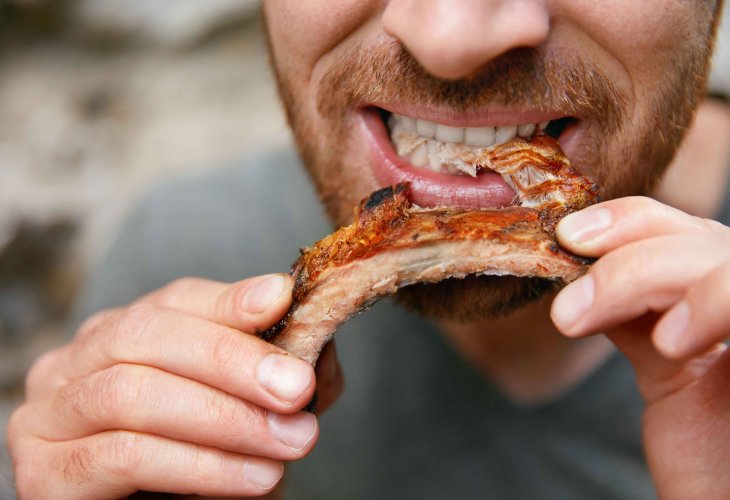Why Chewing Your Food More Can Change Everything
Discover why proper chewing is crucial and how often you should chew your food.
 (Photo: shutterstock)
(Photo: shutterstock)Most of us don't chew correctly. Even food with high nutritional value won't be fully absorbed if it's not chewed well.
Some people simply swallow or "suck up" their food, using a fork rapidly, taking another bite before even swallowing. This not only detracts from the enjoyment of a relaxed meal but also harms our health.
The digestive process starts in the mouth. The more we break down food there, the less the stomach has to work. This is why the act is called "chewing"—it turns food into a pulp, breaking it down as much as possible. Undigested food can lead to bacterial overgrowth throughout the digestive tract. Additionally, when chewing begins, saliva is secreted, containing special enzymes that aid in decomposition and absorption. This sends a signal to the stomach and intestines that digestion is starting, helping organs prepare for the task ahead—digesting and absorbing vital substances while eliminating waste.
When you eat calmly and chew your food well, the taste of the food is noticeable, and the body is at ease. Eating under stress and quickly doesn't allow proper digestion and results in fermentation. After chewing, it's easier for food to be absorbed into the bloodstream, and the body gains more good nutritional values from the food.
Moreover, eating slowly and chewing calmly leads to the secretion of the satiety hormone "leptin." As a result, the amount of food we consume at a meal decreases. The more we chew - the less we eat. We have an involuntary muscle in the stomach that contracts and mixes the digestive juices with the food, pushing it to the intestines. When a person stuffs their stomach, it can't contract, making it hard to move food to the intestines for further digestion. This results in fermentation, as digestion occurs by bacteria without digestive juices, leading to bloating and stomach pain as the food decays.
It's important to set aside time for meals, taking smaller bites, and resting the fork during chewing; otherwise, the brain assumes more food is waiting and rushes you to swallow.
Our mood affects digestion, so it's best not to eat when angry or stressed.
"No talking during meals"—worth trying.
How many times should you chew? Until the food becomes like a paste; no need to count chews.
Meals will take longer, but food quantity will decrease. Thus, we'll strengthen the digestive system, reduce stomach aches, and most importantly—maximize the absorption of vitamins and minerals.
Calm chewing.
Zohara Sharvit is an N.D. naturopath and iridology expert with years of experience in treatment, advising, and leading workshops. To book a free workshop, call 073-2221290.

